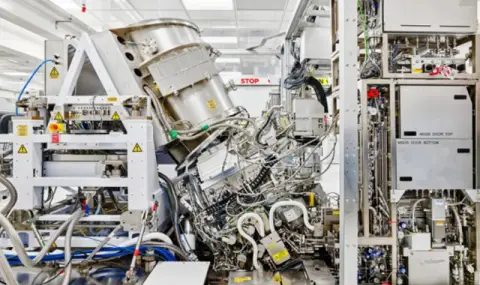China has announced a major breakthrough in silicon photonics for semiconductor manufacturing. JFS Wuhan State Laboratory, a national photonics research center, has successfully connected a laser light source to a silicon chip for the first time. This achievement, according to Chinese media, could help the country overcome existing technical barriers in chip design and achieve self-sufficiency in the face of US sanctions.
Established in 2021 and backed by the government with 8.2 billion yuan ($1.2 billion), JFS is one of China's key institutions developing advanced technologies. As JFS notes, the new technology uses optical signals instead of electrical signals to transmit data, allowing it to overcome the limitations of traditional chips related to the physical limitations of transmitting electrical signals and create faster and more powerful processing chips of big data, graphics and artificial intelligence.
Not only China is showing interest in silicon photonics
Major players in the global semiconductor industry such as TSMC, Nvidia, Intel and Huawei are also investing heavily in the development of this technology. SEMI, the international semiconductor industry association, estimates that the global silicon photonic chip market will reach $7.86 billion by 2030, up from $1.26 billion in 2022. TSMC Vice President Douglas Yu Chen-hua said last year that “a good silicon photonics integration system can solve critical energy efficiency and computing power issues in the AI era, leading to a paradigm shift in the industry”.
Note that silicon photonics is of particular importance to China. Unlike traditional chips, photonic chips do not require high-tech extreme ultraviolet (EUV) lithography machines, which are subject to US export restrictions to China. “Silicon photonic chips can be produced domestically using relatively cheap materials and equipment,” Su Jun, president of Beijing semiconductor startup Sintone, said in 2022.
Experts believe silicon photonics could become a “new front in the US-China technological rivalry”
„While US export controls are likely to limit China's ability to produce traditional chips, they may also inadvertently encourage China to devote more resources to new technologies that will play an important role in the next generation of semiconductors,” it said. Matthew Reynolds, former fellow at the Center for Strategic and International Studies (CSIS).
